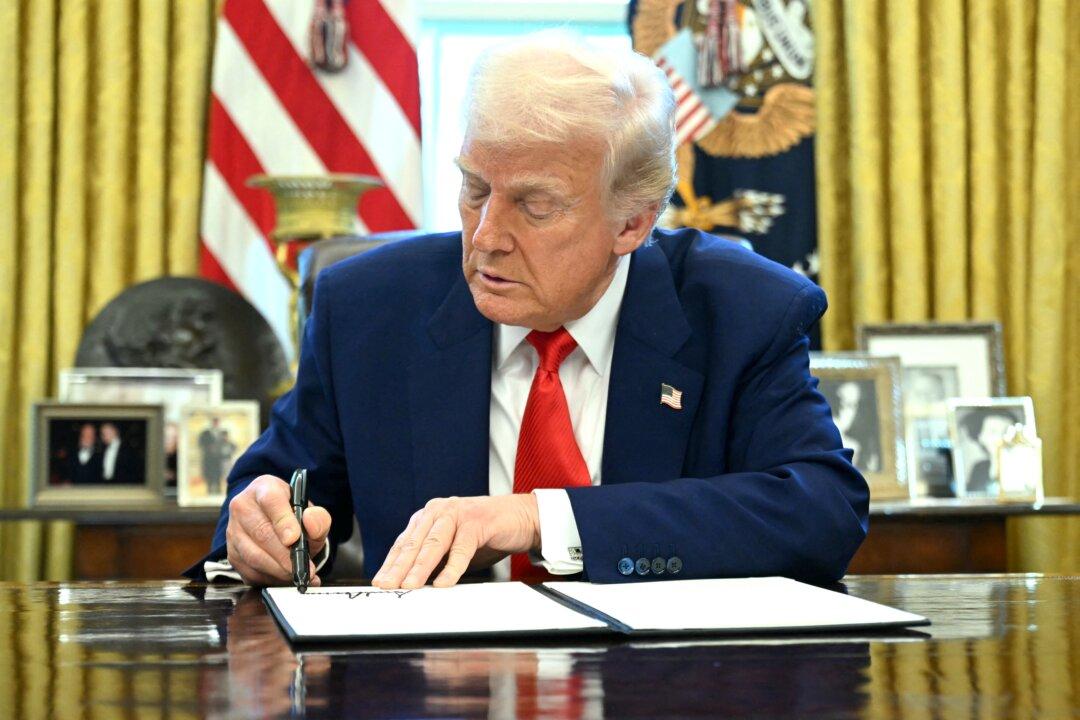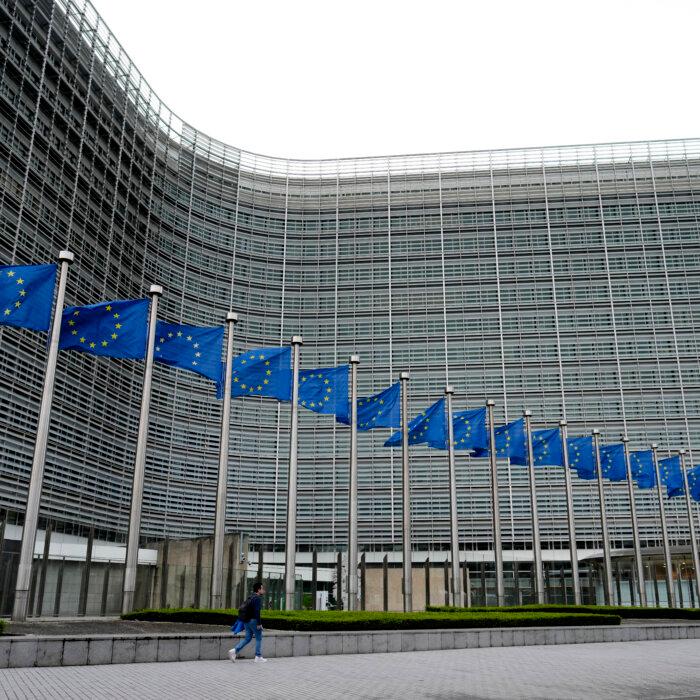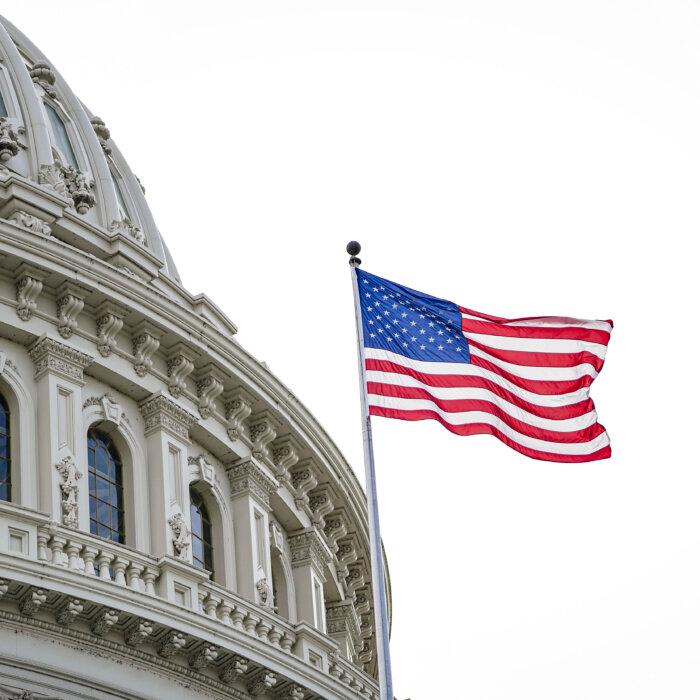House Passes Budget Plan to Advance Trump’s Agenda
The House approved a revised blueprint to unlock a bill for Trump’s tax cuts, border, and energy measures.
How Trump’s 125 Percent Tariffs Are Dismantling China’s Unfair Trade Regime: Christopher Balding
Here’s how Trump is reshaping the global economic order and forcing a decoupling from China.
Trump Hikes Tariffs on China to 125 Percent After Beijing Opts to Play Hardball
The president is hiking tariffs on China to 125 percent after Beijing opted to play hardball. Meanwhile, other countries are getting a 90-day pause.

250 Years Ago, Part 4: The Salem Gunpowder Raid and Leslie’s Retreat
On the road to the Revolutionary War, defiant Patriots give the British a prelude of battles to come.

The Importance of Myth and Why We Should Understand It
Myth is not the opposite of truth; it’s a way of getting at deeper truths.

Cherishing Judaica: Jewish Objects Around Boston
The ‘Intentional Beauty’ of Jewish craftsmanship is in an exhibition at the Museum of Fine Arts, Boston.
Most Read
Top Stories
House Passes Bill to Require ID, Citizenship to Vote
The bill, called the Safeguard American Voter Eligibility Act, or SAVE Act, now goes to the Senate.
House Votes to Repeal Biden-Era Rule Restricting Bank Overdraft Fees
‘The Biden-era CFPB overdraft rule would harm the very consumers it’s supposed to protect,’ said Sen. Tim Scott.
▶How Trump’s 125 Percent Tariffs Are Dismantling China’s Unfair Trade Regime: Christopher Balding
Here’s how Trump is reshaping the global economic order and forcing a decoupling from China.
How Chinese Imports Are Leveraged in Cyberattacks
Chinese-made devices have been repeatedly exploited as part of a Beijing-backed effort to undermine and destabilize the United States.
TikTok Deal With China Still on the Table, Trump Says
The president remains optimistic about a deal with China over TikTok amid the latest trade battle.
White House Official Says More Than 15 Countries Have Made Trade Deal Offers
‘It is going to take some kind of extraordinary deal for the president to go below’ the baseline, National Economic Council Director Kevin Hassett said.
Breaking
Tariffs on China Reach 145 Percent After Latest Increase, White House Clarifies
A White House official confirmed that the new tariff rate on Chinese products now totaled 145 percent, not 125 percent as the president suggested earlier.
US Spy Chief Gabbard Starts Task Force to Investigate Intelligence Community
Her statement said the group will also work in concert with the Department of Government Efficiency.
US Stocks Drop Day After Trump Tariff Pause Announcement
A day earlier, all three indexes posted significant gains, with the Dow Jones increasing by nearly 3,000 points.
Federal Government Moves to Drop Case Against Alleged MS-13 Gang Leader
Henry Josue Villatoro Santos, 24, was arrested last month by FBI agents at his family home in Virginia.
UK And France Convene Defense Ministers’ Meeting to Discuss Ukraine
The UK, France, and the other European countries involved in the ‘coalition of the willing’ are still hoping for security guarantees from the United States
Tracking Trump’s High Level Appointments, Senate Confirmations
The Senate is undertaking the confirmation process for the president’s new administration.
Art Critic Loves Shen Yun
Art critic Karen Sulcan came to see Shen Yun Performing Arts on April 8 and was pleased to share that she loved it.
Inflation Cools to 2.4 Percent in March, Lowest in 6 Months
Declining energy costs fueled the better-than-expected inflation report.
Global Markets Rally After Trump Pauses Tariffs
Indices from Tokyo to Frankfurt all experienced rapid rises following the president’s announcement.
EU Pauses Countermeasures Against US Steel Tariffs for 90 Days
European Commission President Ursula von der Leyen said the EU remains committed to ‘constructive negotiations with the United States.’
US-Russian Dual National Ksenia Karelina Released in Prisoner Swap With Moscow
The former ballet dancer—who was imprisoned last year on treason charges—was freed as part of a prisoner swap aided by the United Arab Emirates.
RFK Jr. Says Food Companies Have 2 Years to Remove Artificial Dyes
Robert F. Kennedy Jr. disclosed details about his closed-door meeting with food company executives.
Whitmer Offers Partial Support for Tariffs, Receives Praise From Trump
The Michigan Democrat met with the president at the White House.
Tariffs Could Be a Win for California’s Battered Wine Industry
‘A lot of people don’t want to speak out on this because it’s become such a politicized issue,’ a winemaker says.
Australia Rejects Offer to Join Hands With China Against US Tariffs
Trump has increased tariffs on China to 125 percent, while the rest of the world will get a 90 day pause on reciprocal tariffs.
John Adams’s Integrity and the Boston Massacre
In this new installment of ‘When Character Counted,’ attorney John Adams risked the loss of his reputation and livelihood in his passion for justice.
Special Coverage
Special Coverage





























































![[PREMIERING 9PM ET] Inside China’s Stranglehold on the Global Medicine Supply Chain: Rosemary Gibson](https://www.theepochtimes.com/_next/image?url=https%3A%2F%2Fimg.theepochtimes.com%2Fassets%2Fuploads%2F2025%2F04%2F10%2Fid5839860-250410-ATL_Rosemary-Gibson_HD_TN_Final-600x338.jpg&w=1200&q=75)
















































